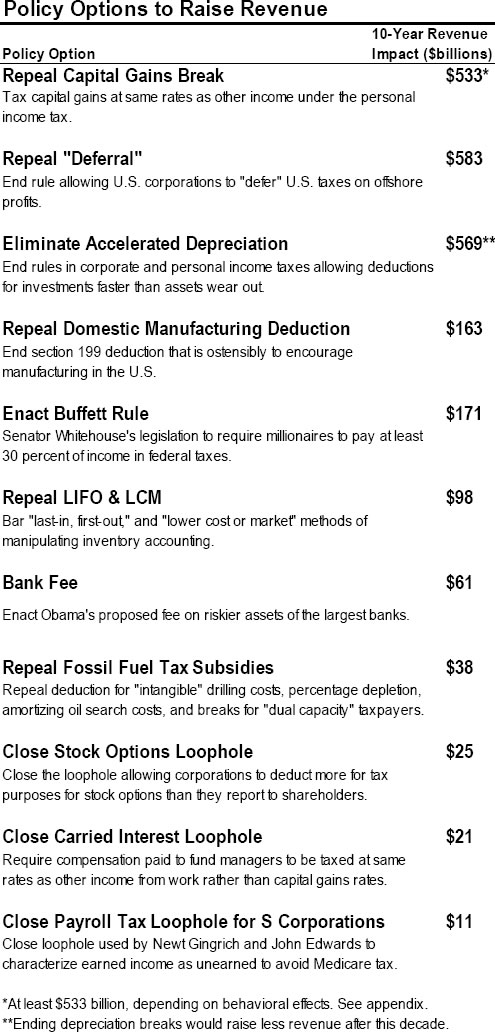Nevada Governor Brian Sandoval campaigned on a promise of no-new-taxes but is breaking that promise (for a second time!) with his plan to balance the Silver State budget. In an effort to avoid deep cuts in education, Sandoval is once again supporting an extension of temporary sales, payroll, and car taxes originally enacted in 2009. Grover Norquist calls Sandoval the poster boy for why candidates can’t just promise no-new-taxes, they have to sign his pledge; in fact, Sandoval is a good example of why they shouldn’t.
We’ve already written that Arthur Laffer’s claims about economic growth and income tax repeal are fundamentally flawed and that in fact “high rate” income tax states are outperforming no-tax states. Now, three respected Oklahoma economists have come out in agreement, and are offering their own critique of Laffer’s findings. This is great news given that Laffer’s work has been so central to lawmakers’ efforts to eliminate the state income tax – the most progressive feature of any state’s tax system.
This week the Maryland Senate voted to raise personal income taxes in order to offset the anticipated “doomsday cuts” in public services that would otherwise have to occur. An analysis from the Institute on Taxation and Economic Policy (ITEP) showed that the bill would be generally progressive. And in yet another bit of good news, a late amendment to the bill would enhance its progressivity even more, as Marylanders earning more than a half-a-million dollars will no longer be able to take advantage of the state’s lower marginal rate brackets.
The Wichita Eagle editorial board is watching the Kansas House and Senate take up tax reform, and they are worried. While they’re glad some lawmakers are dubious about “the suspect advice of Reagan economist Arthur Laffer,” the governor’s advisor, they don’t like a House plan that “makes permanent the punishing budget cuts of the past few years to education, social services and other programs.” They opine that “tax reform needs to make fiscal sense and broadly benefit Kansans,” and conclude that with the various and competing proposals right now, it’s anybody’s guess if that will be the outcome.


 economic disruption is to blame. In reality however, corporate tax revenue
economic disruption is to blame. In reality however, corporate tax revenue 
 in Kansas to be like Texas, reminding Kansans that Texas ranks low in everything that really matters, from high school graduation rates to household income to crime.
in Kansas to be like Texas, reminding Kansans that Texas ranks low in everything that really matters, from high school graduation rates to household income to crime.




 New Mexico Governor Susana Martinez has to decide Wednesday how to respond to mounting public pressure (including
New Mexico Governor Susana Martinez has to decide Wednesday how to respond to mounting public pressure (including  Maryland over tax increases in the coming weeks. Governor O’Malley, Senate leadership, and House leadership all recently unveiled their own proposals to raise taxes. The Governor proposed raising taxes on better-off taxpayers by reducing deductions and exemptions, and by increasing the gas tax. The competing Senate plan would increase income taxes on nearly every Marylander, while the House plan would raise taxes on only the wealthiest taxpayers. Lawmakers in the Old Line State should be applauded for
Maryland over tax increases in the coming weeks. Governor O’Malley, Senate leadership, and House leadership all recently unveiled their own proposals to raise taxes. The Governor proposed raising taxes on better-off taxpayers by reducing deductions and exemptions, and by increasing the gas tax. The competing Senate plan would increase income taxes on nearly every Marylander, while the House plan would raise taxes on only the wealthiest taxpayers. Lawmakers in the Old Line State should be applauded for  credits were worth $685 million, which is about 78 percent of all taxes owed by businesses that year. When 14 separate agencies are
credits were worth $685 million, which is about 78 percent of all taxes owed by businesses that year. When 14 separate agencies are